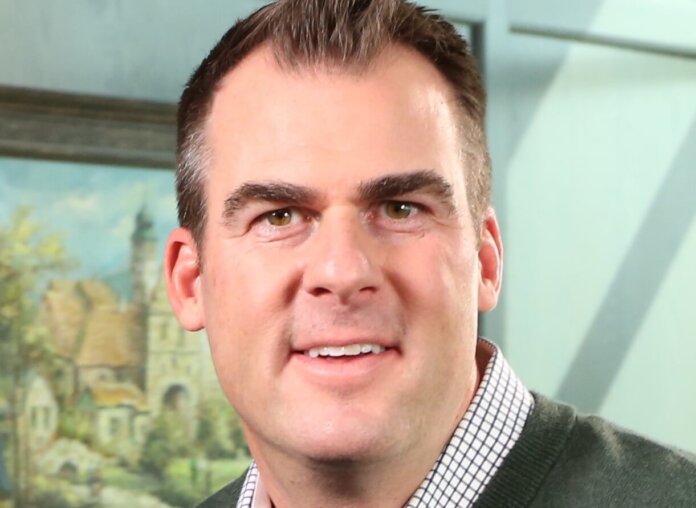PERSON OF THE WEEK: Kevin Stitt is the founder of Gateway Mortgage Group, a privately held, full-service mortgage company licensed in 41 states and the District of Columbia.
MortgageOrb recently interviewed Stitt to get his perspective on how lenders are shifting to a proactive approach when it comes to compliance, how the industry is changing to function more like banking from a compliance standpoint, and why it is critical for lenders to invest in building out their compliance departments as their companies grow.
Q: As mortgage lenders expand, what should their overall philosophy be with regard to compliance?
Stitt: Compliance plays a massive role in the life of a mortgage company, and because of that, it’s really in the best interest of a lender’s team members and customers to make it a large part of the cultural fabric of the organization. Ultimately, the goal of a business owner in our industry should be to make investments in the business that would meet the standard of what a federal regulator wants to see from a large institution.
There are three lines of defense, and a lender should ensure that each is doing its designed part. The first line of defense is a strong business unit that understands the rules and regulations of the industry as well as how they apply to day-to-day operations. The second line of defense is the compliance department, which exists to validate the controls the business unit says are in place to meet the policies and regulations required. The third line of defense is the internal audit and testing function. It ensures that a lender has adequate compliance controls in place and that those are articulated clearly in its policies and procedures.
Unfortunately, this level of compliance hasn’t always been the norm in the mortgage industry. Organizations have been slow to commit to the level of proactiveness required to dedicate their time and financial resources to this cause.
Ten years ago, many mortgage companies waited to invest in compliance until they were told to make changes as a result of an examination. Now, we’re seeing much of the industry electing to make a significant investment to get out of the reactive environment and into a proactive approach. They want to know that when the examiners come in, they’re going to be able to validate their business and prove that they’re operating in a compliant manner.
Q: With the evolution of the mortgage industry, why is it essential for mortgage companies to take a proactive approach?
Stitt: If a lender gets this aspect of the business right, it will see a significant return on its investment in the process. It will have happier customers, cleaner loans, a better balance sheet and a solid reputation with the regulators. All these things will allow the lender to continue to grow in a healthy, sustainable and transparent manner.
I attribute a lot of our company’s success to our commitment to building out a full compliance program. We’ve grown exponentially over the last few years because we’ve invested into putting a plan in place that supports longevity. It’s not inexpensive to do, but if one wants to be in the industry long-term, then one needs to make the investment.
Q: What should lenders keep in mind when building out a compliance team?
Stitt: One thing that we approach a little differently is the way our compliance department functions. We’ve spent a lot of effort creating a compliance department that is fully engaged with the production side of our business.
It’s easy for one’s compliance team to say “no” to the production side, and sometimes it truly is their job to say “no.” However, to grow, there has to be a working relationship between the production side of the house and the compliance team. It’s a real partnership, and like all partnerships, one must think through what the other side is trying to do. There’s a natural tension there, but it should be a managed tension coupled with mutual respect. A retail team needs to know that the compliance team is crucial to the business – and the compliance team needs to understand that the retail team is what drives the ship forward.
The personalities that one hires into their compliance group can make or break a team. We make a concerted effort to recruit knowledgeable and experienced team members, but a huge part of what we look for is someone with a production element in their background.
Building a team that has experience on the production side of the house, and that understands the operating environment of the retail team, can really set a lender apart from companies that are purely leveraging third-party vendors or hiring “compliance only” personnel to manage compliance.
Q: How can we expect to see companies adapt to new regulations in the future?
Stitt: We’re seeing mortgage companies focus on safety and soundness. This is more like how a bank typically approaches compliance, and it is vital from an operational and regulatory perspective.
The environment that we operate in has become complex, and the banks have been at this a lot longer than most mortgage companies, particularly on a nationwide basis. We have great state regulators with whom we work with daily, and although they focus on more state-specific functions and operations, they are also moving more in this direction of safety and soundness.
To maintain and preserve good financial performance, it starts with putting good products on the books, and if a lender is doing it the right way, then it is probably compliant with the existing requirements. But, maintaining a focus on the risk management and mitigation elements of operations are a critical function where the banking industry has had a bit of a head start.
The mortgage industry is starting to recognize the importance, and need, for an enterprise risk management system. It is imperative to understand the risks associated with business activities, and the controls that must be in place to monitor, manage and mitigate those risks.
Mortgage companies have a better handle on the entrepreneurial side of things, but making the shift toward operating within a structure that allows for repeatable patterns of success that foster growth, transparency and standardization is a necessary step with today’s regulatory landscape. It’s one thing if a lender wants to be a single broker offering two types of loans, but if it is going to be a national player, originating and servicing loans, it must do things a certain way.
It is critical that, as an industry, we embrace this new reality, as we are all dependent on consumer trust and confidence. If we work toward helping consumers have a good experience, knowing that their loan is done correctly and in a compliant and fair manner, everybody wins. It’s our job to strengthen families and empower them through homeownership.














